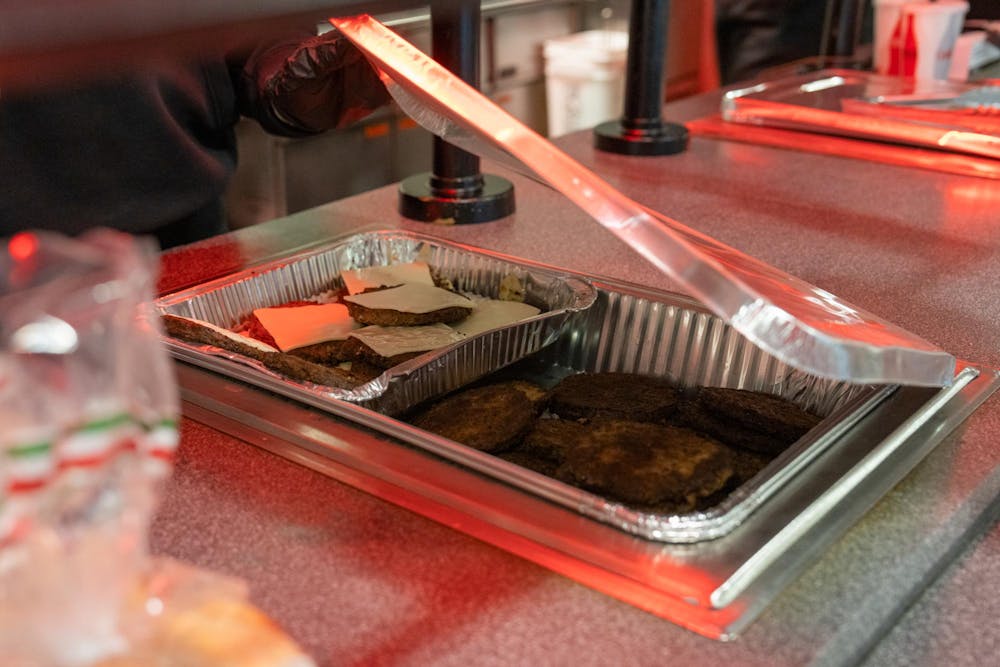In an effort to reach the University’s climate and sustainability goals — including net-zero emissions by 2040 — recent initiatives have turned to the kitchen.
Brown Dining Services has dished out a number of changes to reduce its carbon footprint and minimize food waste, from a controversial half-beef, half-mushroom burger to infrastructure improvements.
One of Dining Services’ primary goals has been reducing their nitrogen emission — as excessive levels of nitrogen in the atmosphere can produce harmful pollutants for humans, forests and waterways. This has led Dining Services to serve less red meat.
At the start of this semester, Dining Services introduced a new burger at Josiah’s. While the previous burger was fully beef, the new version is half-mushroom and half-beef. Since its introduction, the burger has sparked debate among students on campus.
“The new burgers are significantly less dry and tough than the old ones,” Jonathan Lin ’27 said. He added that the 50/50 version of the burger is “the way to go” in terms of sustainability but that fully removing meat “would be too far.”
Tony Fusco ’28 also thought the new 50/50 burger was an improvement. “I feel like it has more flavor and a better texture,” he said. “It’s nice to see that they’re still keeping a beef option while making environmentally conscious changes.”
Nick Kitahata ’27 applauded the initiative, saying “promoting awareness of the impacts of consuming red meat is an important goal.” But “I would be lying if I said (the Jo’s burger) tasted better than before,” he added.
Lily Hong ’28 similarly expressed frustration with the 50/50 burger, calling it a “lose-lose” for both beef lovers and vegetarians. She suggested that in order to be completely sustainable, Jo’s should eliminate beef entirely instead of creating a “half-solution.”
For Priyanka Nambiar ’28, who is vegetarian, sustainability plays a major role in her lifestyle. She frequently uses reusable water bottles and takeout containers in order to avoid single-use items.
“I was raised to always be mindful of my environmental impact,” Nambiar said in an interview with The Herald. The University’s sustainability initiatives have “helped me be mindful of my own negative environmental contributions and provided me with resources to change that,” she added.
According to Vice President of Dining Programs George Barboza, recent changes have included creating a composting program, developing a reusable container program, purchasing electric vehicles and replacing dishwashers to “improve energy and water efficiency.” He added that many of these changes are the result of Dining Services’s partnership with the University’s Office of Sustainability and Resiliency.
But these efforts come with challenges. Barboza noted that environmentally conscious adjustments not only have cost and logistical difficulties but also “require coordination with vendors, additional staff training and overcoming initial resistance to change.”
Barboza acknowledged that balancing sustainability with these challenges, as well as student satisfaction, can be difficult but he is committed to improving the process. He noted that “adjustments can take time” and emphasized that his team actively listens to “concerns and suggestions to ensure a smooth transition.”
Future BDS initiatives may include increasing plant-based meal options, expanding reusable container drop off locations and utilizing technology-driven solutions, Barboza said.





